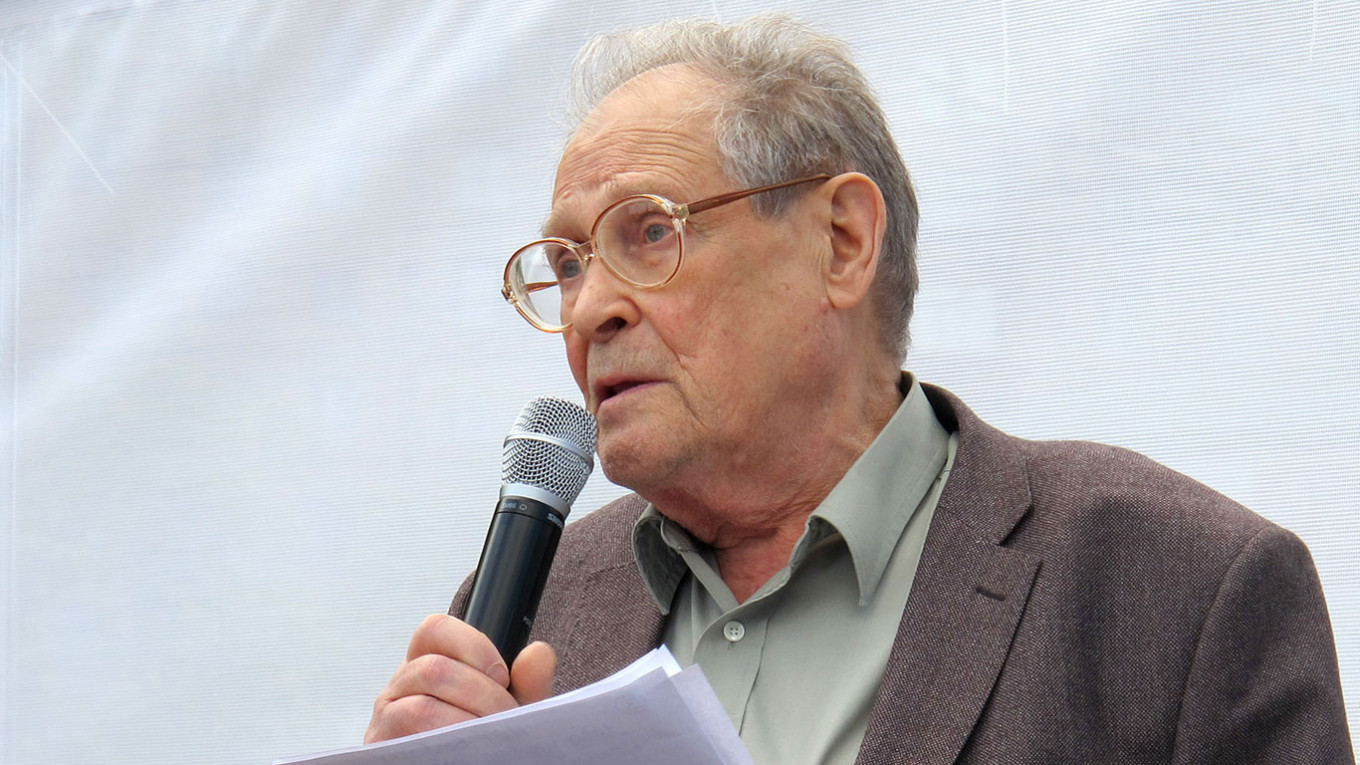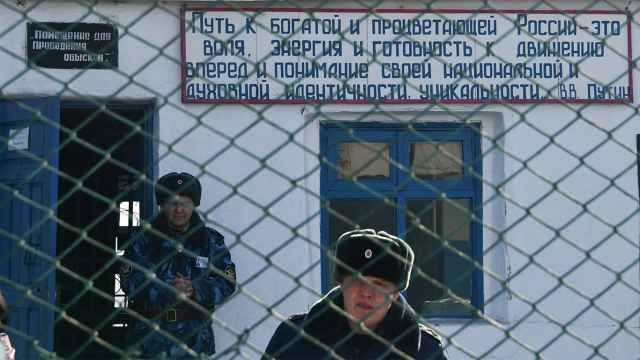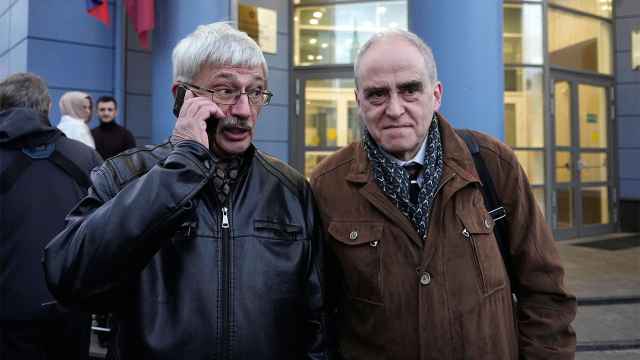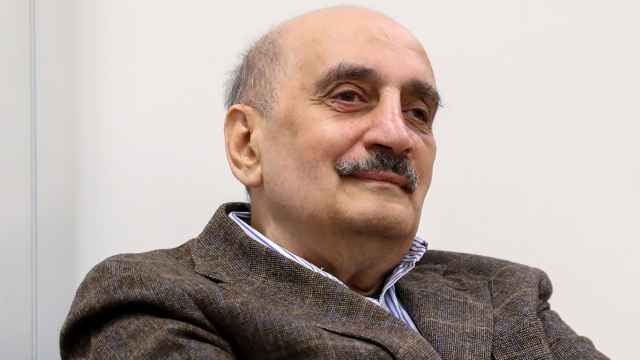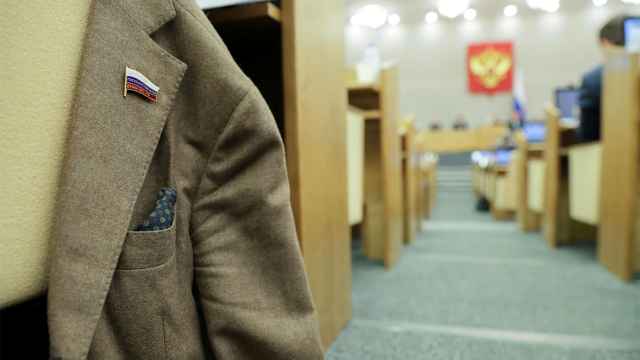Sergei Kovalev, one of the most significant political and human rights figures of the Soviet Union and Russia, died Monday. He was 91 years old.
Sergei Kovalev was born in a small town in the Ukrainian SSR in 1930 and moved with his parents to a village not far from Moscow in 1932. He graduated from the biology department of Moscow State University in 1954 and was awarded an advanced degree a decade later. Until 1969 he worked and taught at the university, publishing dozens of scientific papers and establishing a reputation as a leading biophysicist.
Human rights and freedoms
Even as part of the scientific establishment, Kovalev began to protest. Beginning in the mid-1950s he opposed the theories of Trofim Lysensko, who rejected modern genetics, which had gotten support from the top Soviet leadership. Scientists and practitioners who fought Lysenko’s theories lost their jobs, were imprisoned or even executed.
By 1969 Kovalev became an active and visible political dissident. He was a founder of the Action Group for the Defense of Human Rights and the Chronicle of Current Events. He signed letters of protest against the incarceration of such prominent dissidents and Alexander Solzhenitsyn and Vladimir Bukovsky.
In 1974 he was arrested and found guilty of Article 70 of the penal code: “anti-Soviet agitation and propaganda.” He served seven years in prison camps and another three years in exile in Kolyma. Unable to return to Moscow, he settled beyond the 100-kilometer mark in Tver (then called Kalinin). He was only permitted to return to Moscow in 1986 by decree of Mikhail Gorbachev.
From the perestroika era on, Kovalev would play a great role in governmental and non-governmental efforts to secure and enshrine human rights and basic freedoms. He took part in the establishment of such organizations as Memorial, the Moscow branch of Amnesty International, the Glasnost Press Club, and the International Humanitarian Conference. At Andrei Sakharov’s recommendation he was co-director of the Project Group of Defense of Human Rights, later called the Russian-American Human Rights Group. He was a constant guest of radio and television talks shows and rarely refused to provide a comment to journalists.
His protesting never waned. In 2010 he was one of the heads of Strategy-31, one of the first organized protest groups in the post-Soviet era that came out on Triumfalnaya Square on the last day of every month with 31 days. The protesters, who were fighting for freedom of assembly — the 31st article of the Russian constitution — were usually detained for "unlawful assembly."
Politics
Kovalev was one of the writers of Russian Constitution Article 2 on the rights and liberties of people and citizens. He was co-author of the Declaration of Human and Civil Rights in Russia (1991). From 1990-93 he was an elected deputy of the Russian Federation and chairman of the President’s Commission on Human Rights as well as Rights Commissioner for the State Duma. From 1993-2003 he was a member of State Duma and served for seven years on the Russian delegation to the Council of Europe. He was a co-founder of the Choice of Russia Party. In 2006 he joined Yabloko party and served on its committee until 2019.
Kovalev spoke out against what he believed was injustice and a violation of human rights and freedoms regardless of the leader. He was a vociferous opponent of Boris Yelstin’s war in Chechnya. In 1995 when Chechen rebels led by Shamil Basayev attacked the town of Budyonnovsk and took thousands hostage in a local hospital, Kovalev volunteered as a hostage. He spent 36 hours in custody while Basayev fought off Russian forces and executed several hostages.
Kovalev eventually resigned from the human rights commission under Yeltsin in a scathing letter that accused the president of abandoning human rights. He organized a commission to investigate the 1999 apartment bombings. That investigation, however, was never completed after members of the commission were killed, died under unclear circumstances or were arrested. He continued to speak out against diminishing freedoms under Vladimir Putin.
Sergei Kovalev’s death was announced by his son, Ivan, who has followed his father as a defender of human rights. Funeral arrangements have not been announced.
A Message from The Moscow Times:
Dear readers,
We are facing unprecedented challenges. Russia's Prosecutor General's Office has designated The Moscow Times as an "undesirable" organization, criminalizing our work and putting our staff at risk of prosecution. This follows our earlier unjust labeling as a "foreign agent."
These actions are direct attempts to silence independent journalism in Russia. The authorities claim our work "discredits the decisions of the Russian leadership." We see things differently: we strive to provide accurate, unbiased reporting on Russia.
We, the journalists of The Moscow Times, refuse to be silenced. But to continue our work, we need your help.
Your support, no matter how small, makes a world of difference. If you can, please support us monthly starting from just $2. It's quick to set up, and every contribution makes a significant impact.
By supporting The Moscow Times, you're defending open, independent journalism in the face of repression. Thank you for standing with us.
Remind me later.


